Reframing Warhol's The Scream, after Munch, Pauline Karpidas: The London Collection Evening Auction, Sotheby's
Posted: 15 Sep 2025 by PML
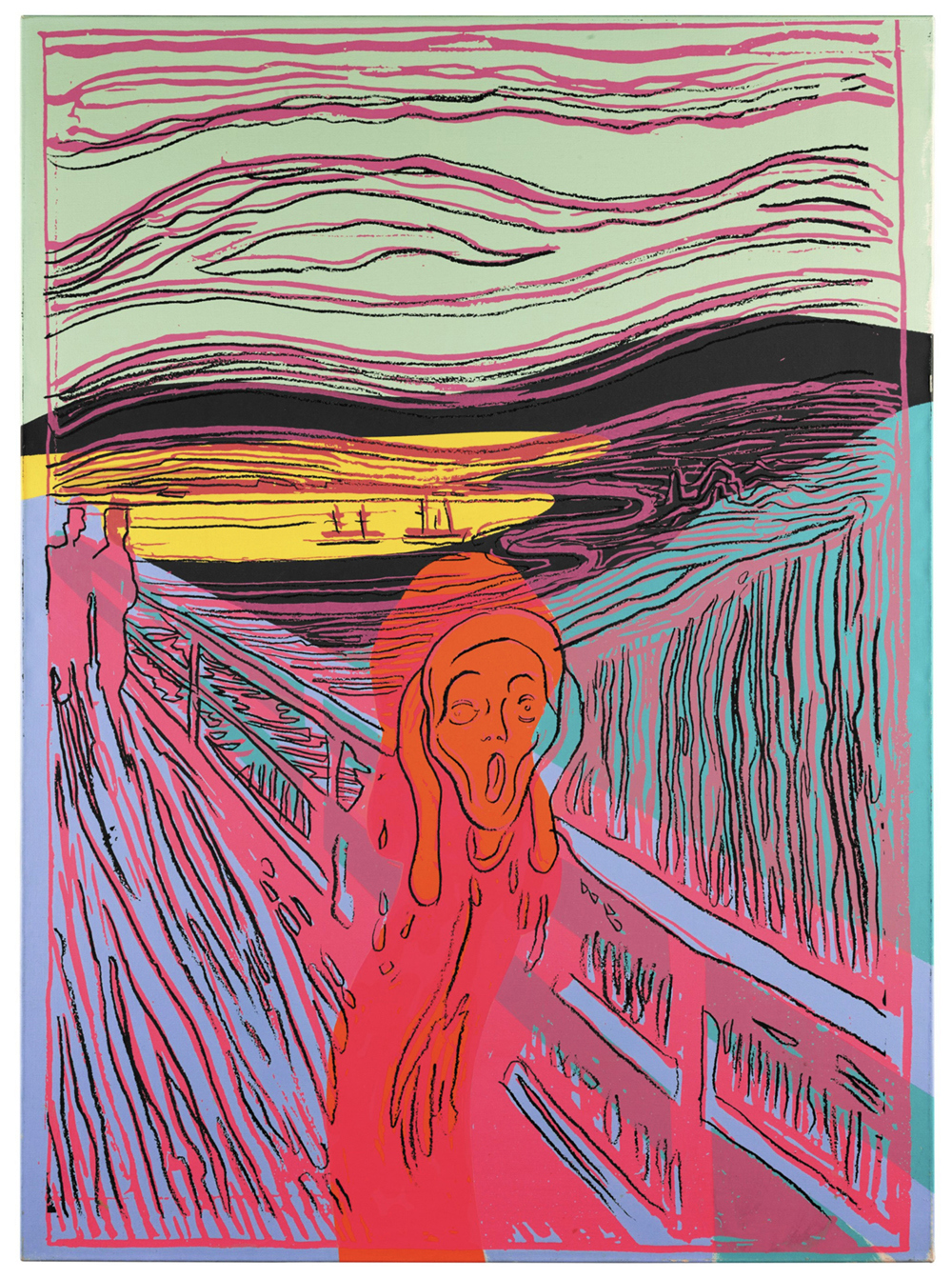
Andy Warhol (1928-87), The Scream after Munch, 1984, acrylic, silkscreen ink, canvas, 132.4 x 97 cm., Sotheby's, 17 September 2025, Lot 11
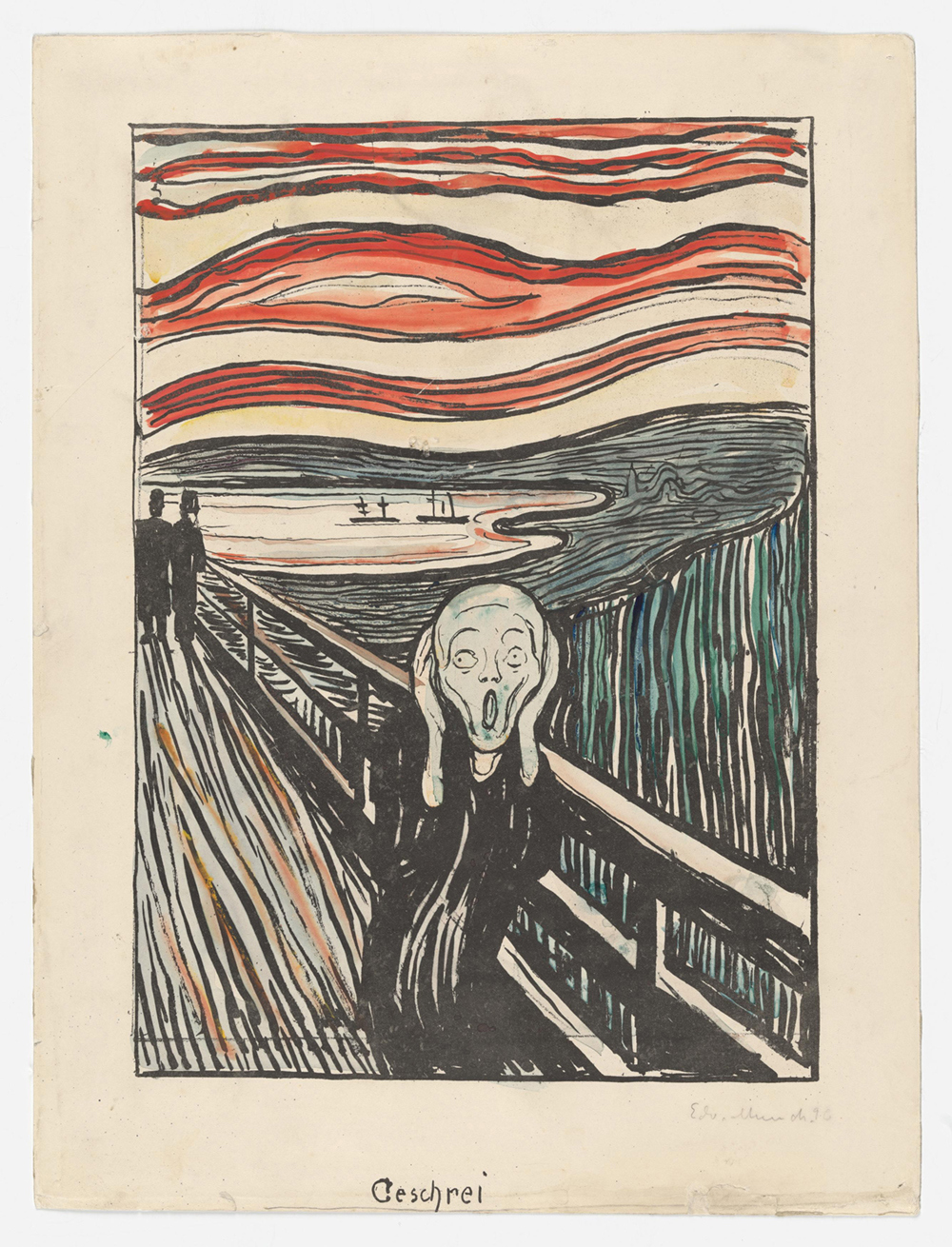
Edvard Munch (1863-1944), The Scream, 1895, lithograph, hand coloured in watercolour, 35.4 x 25 cm. on paper 43.2 x 32.5 cm., Munchmuseet
Munch had painted his apocalyptic vision of 'The Great Scream in Nature' in 1893, and two years later produced black-&-white lithographs of the composition, one of which - in the collection of the Munch Museum in Oslo - was picked out in watercolour.
Warhol saw the painting when he visited Norway in 1972, and the lithograph at an exhibition in New York ten years later. He was fascinated by both, and his own version translated the lithograph into a much larger silk screen image, increasing the emotional anguish expressed in the lines of Munch's work by his own use of hallucinogenic colour. The 'Blood and Tongues of Fire' which filled Munch's sky now invested the figure of the artist as well, offset behind and above it in a malignant halo. The effect of line and colour combine to produce a disconcerting optical vibration, as though the original image has been physically animated.
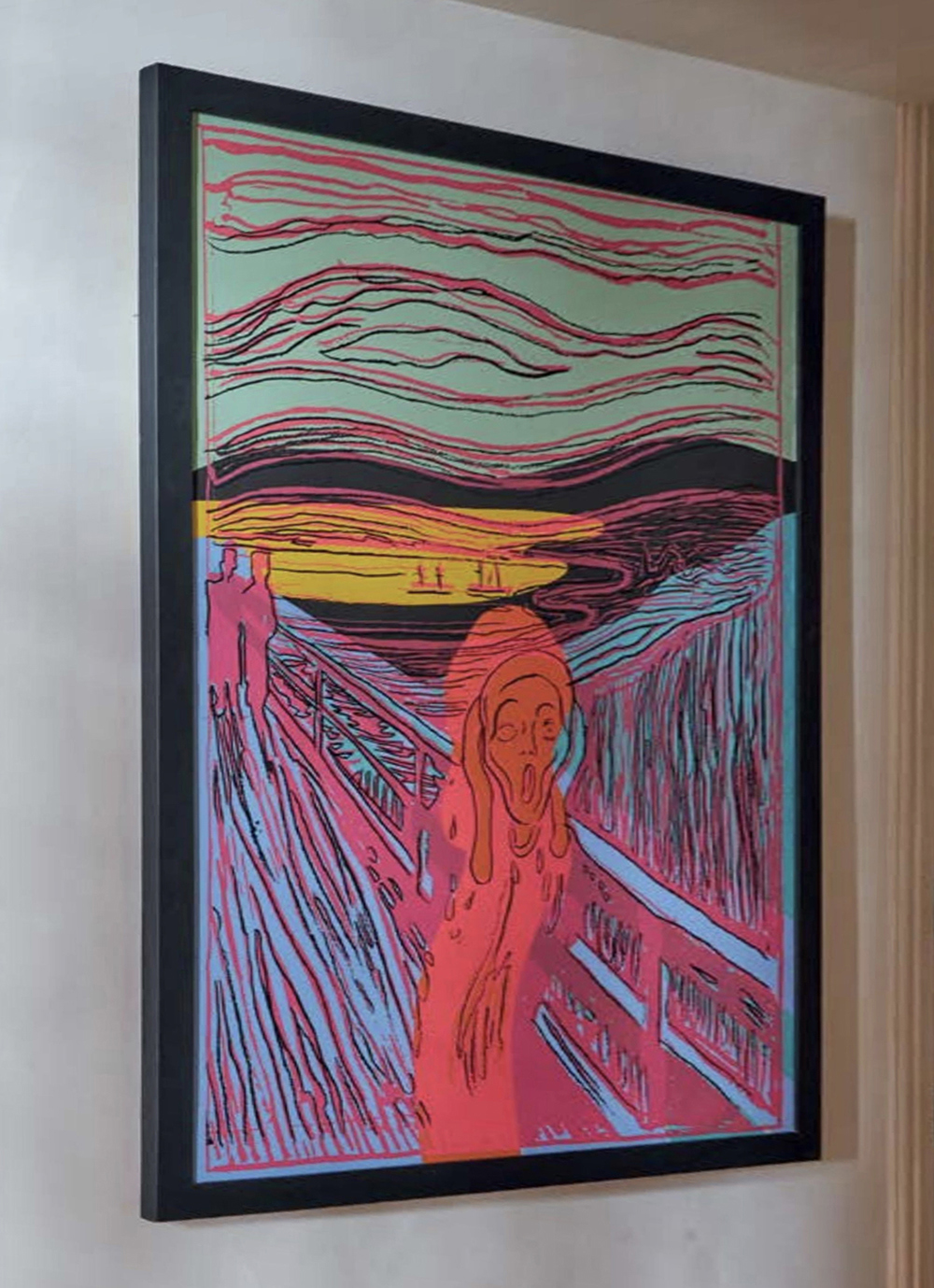
Warhol's The Scream, after Munch, hanging in Pauline Karpidas's house
This variation on Munch's original two versions of the work is part of Pauline Karpidas's collection, and is being sold by Sotheby's, London, on 17th September 2025. It hung in her house in London in an extremely plain black strip frame, which fitted in very well with the collection as a whole, but - once removed from its place in a complex scheme - did not seem to have enough presence or importance to present this created and recreated vision.
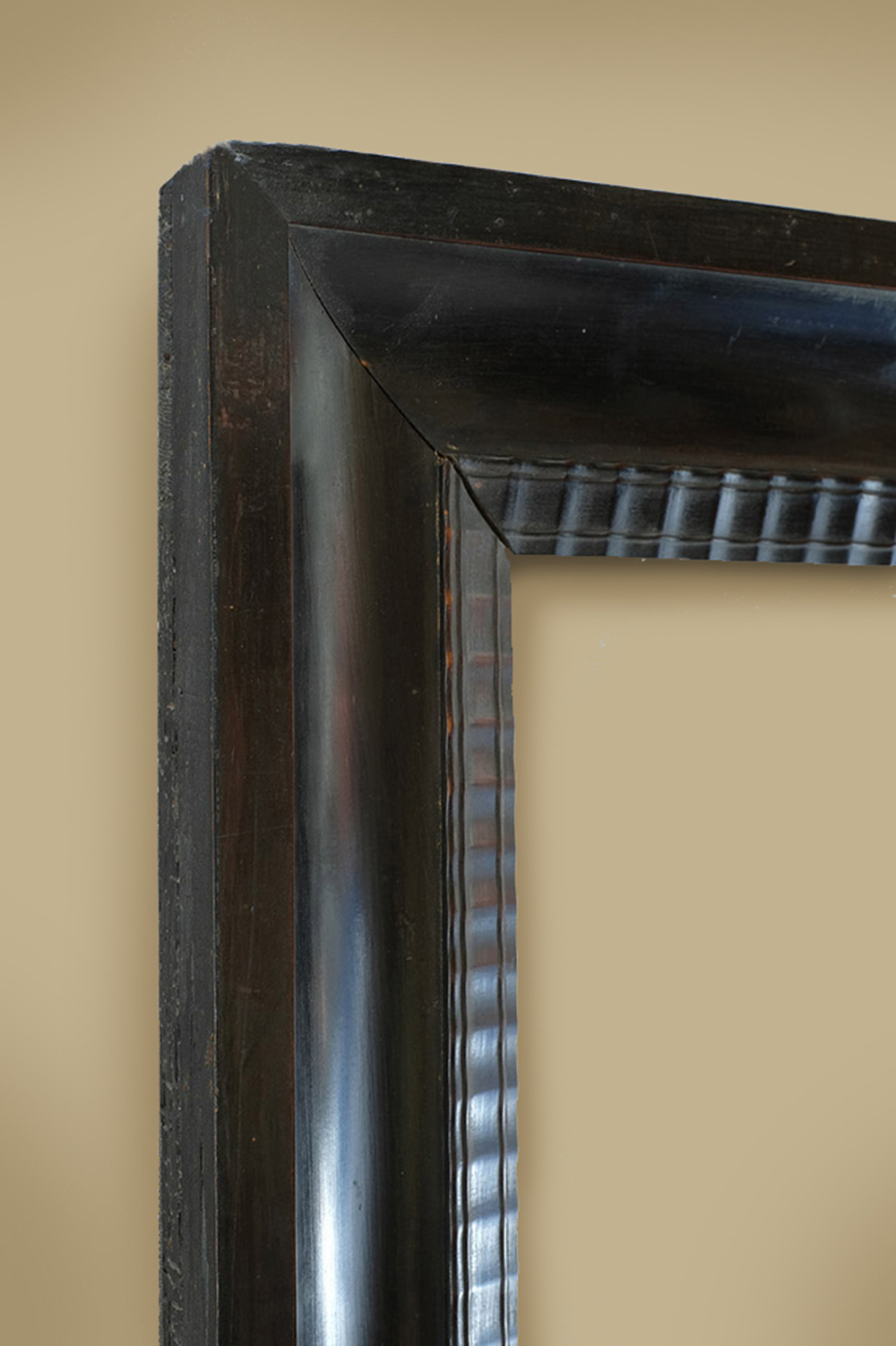
The solution offered by Paul Mitchell Ltd was the replica of a 17th century Netherlandish cabinetmaker's frame, hand-made in pearwood and given an ebonized finish. It has a hollow or scotia profile, and its only ornament is the band of wave moulding at the sight edge. The polished finish reflects a subtle shift of dancing light along the scotia, and the minute surface scallops of the wave moulding pick this up in a faster, flickering movement, producing a tension with the lines of composition which increases the vibration of the whole work. Warhol's Scream in this frame is a resonating echo and re-echo of profound existential discomfort.
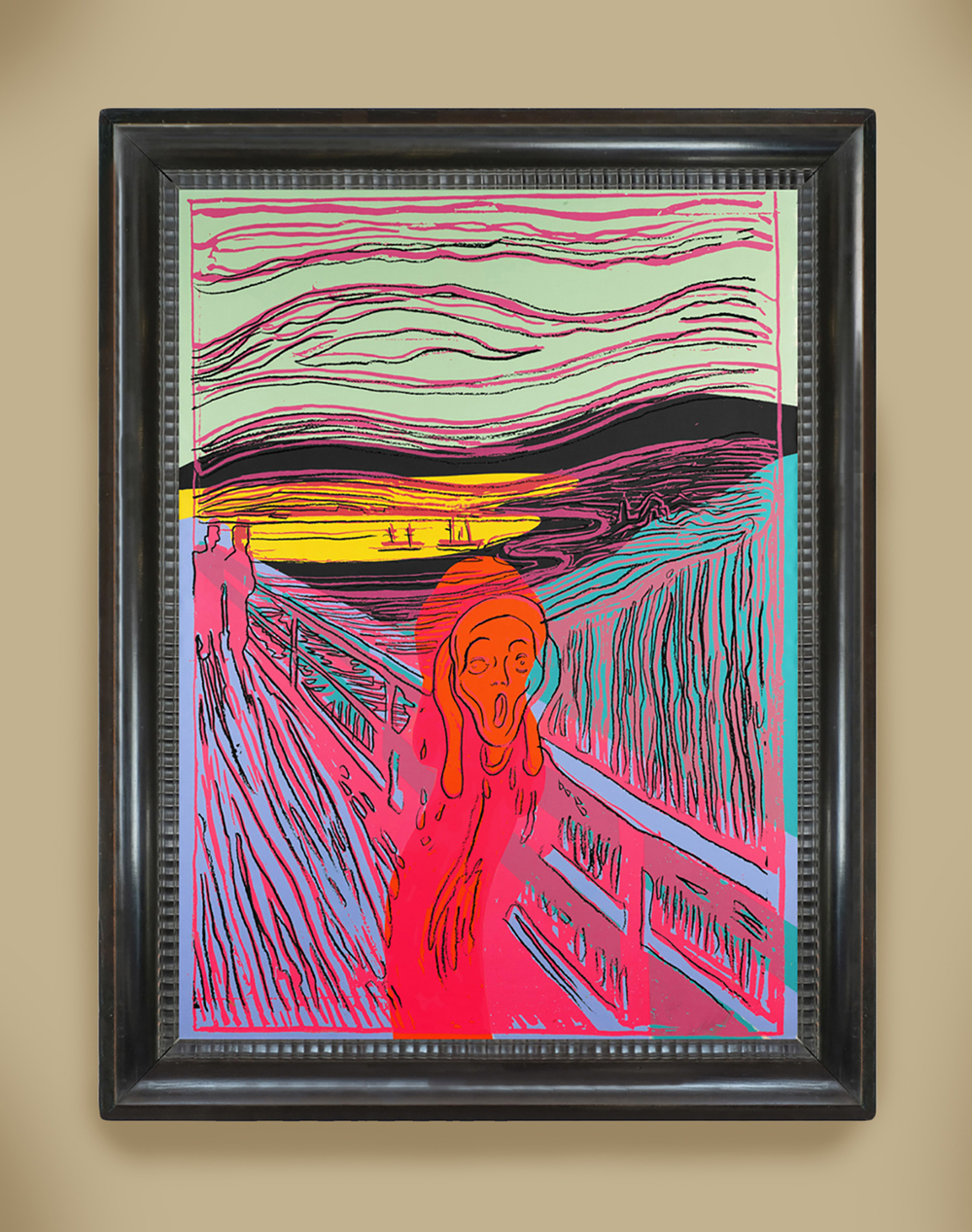
Warhol, The Scream after Munch, 1984, reframed in a replica 17th century ebonized pearwood cabinetmaker's frame, in which it is offered for sale
Categories
- Articles on multiple aspects of European frames
- Recent framing projects undertaken by Paul Mitchell Ltd
